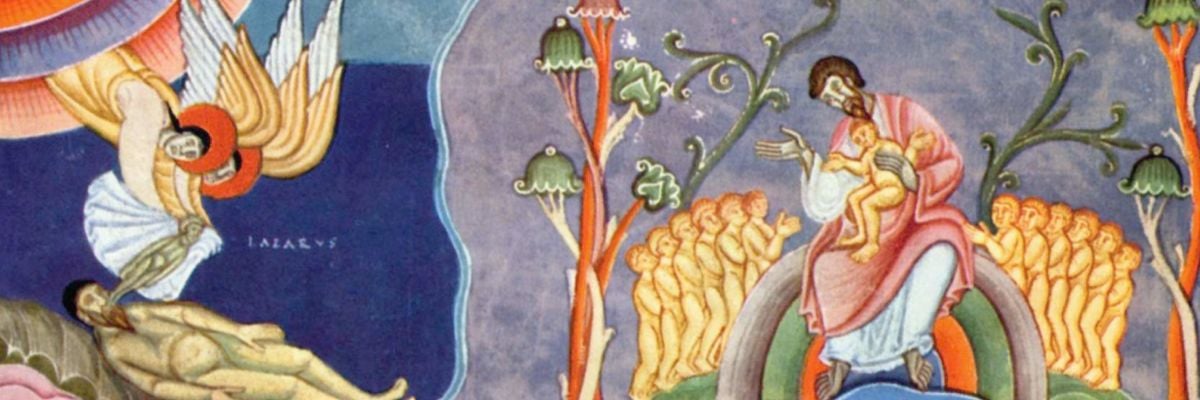
Question:
Answer:
After death, the just souls of the pre-Christian era existed in a state of being that is often referred to in Hebrew as Sheol or in Greek as Hades (Catechism 633). These terms were used simply to describe the abode of the dead, whether evil or righteous.
But the afterlife that these just souls experienced was not that of the damned. Although there is not much revelation about what their experience of the afterlife was, there are a few clues that indicate their experience was some sort of natural bliss.
For example, Jesus refers to it in the affectionate terms of “Abraham’s bosom” in the parable of the rich man and Lazarus (Luke 16:19-31). When Samuel’s spirit is conjured up in 1 Samuel 28:14-15, Samuel describes himself as being awakened from his “rest.” Jesus calls this pre-Christian holding place “Paradise” when he tells the good thief that he will be there with Jesus that day (Luke 23:43).
It is to these spirits that Jesus preached the gospel between Good Friday and Easter Sunday (1 Pet. 3:19). The Catechism of the Catholic Church says:
This was the first meaning given in the apostolic preaching to Christ’s descent into hell: that Jesus, like all men, experienced death and in his soul joined the others in the realm of the dead. But he descended there as Savior, proclaiming the Good News to the spirits imprisoned there (632).
St. Thomas Aquinas sums up with great clarity the purpose of Christ’s descent into Sheol:
Consequently, when Christ descended into hell, by the power of his Passion he delivered the saints from the penalty whereby they were excluded from the life of glory, so as to be unable to see God in his essence, wherein man’s beatitude lies, as stated in the Second Part (I.-II. Q. III., A. 8). But the holy fathers were detained in hell for the reason, that, owing to our first parent’s sin, the approach to the life of glory was not opened. And so, when Christ descended into hell he delivered the holy fathers from thence (Summa Theologiae III:52:5).



